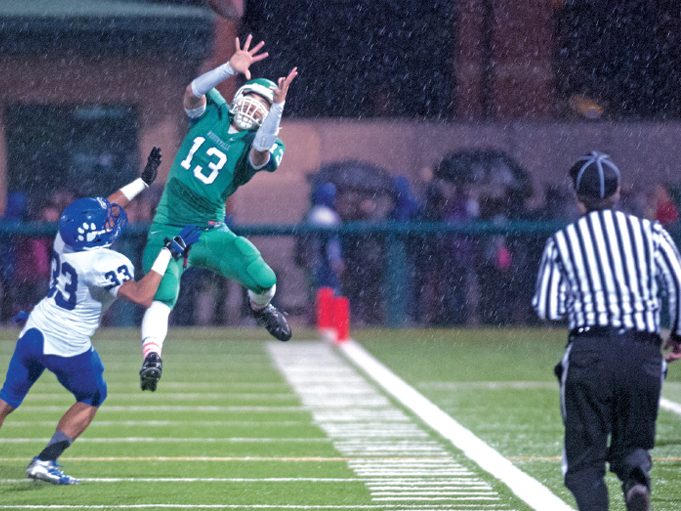Sports officials must understand the game they are working or they’re in for a heap of headaches. An official must know the rules to the best of his or her ability, have a handle on the tendencies of both participating teams and know his or her partner’s capabilities to do the best job possible.
That’s all true, but that’s not all.
With each play it is important for you to anticipate what might likely happen, use the accepted mechanics and always try to be in the best position for the best angle and wait for the play or action to end. And then make the call.
That may seem like a lengthy process, but it happens in a flash. To be ready is to mentally prepare or anticipate an action before making a final decision — call or no-call, foul or no foul, violation or no violation.
Anticipating the play before making the call is one of the best officiating mind-sets to remember. If you can “feel” what’s coming and adjust your position or your visual focus to the right area, you’ll see the play better and have a great opportunity to make the right call. If you decide what you’re going to see before you see it happen, you will get burned.
Good baseball and softball umpires quickly recognize when a team is in a bunt or steal situation. Football officials can sense a running or passing play for a first down or touchdown. Top basketball referees know when a team will probably use full-court pressure or change defenses to attack an opponent. Alert soccer officials know who will likely receive the ball on a corner kick when a player runs from the other end of field into the mixer, and they can anticipate screening and pushing from the opponent. All of that helps officials to anticipate the play, not the call. In that process, apply timing, one attribute that separates average officials from very good ones, and withhold your call until the play is over or the time is right.
In baseball or softball, a runner will be no more or less out or safe if you wait until all action is over. If the shortstop throws the ball to the first baseman, who catches it long before the batter-runner arrives at the base, wait a fraction of a second. There is always a chance that the first baseman will drop the ball or pull his or her foot off of the bag, which may be just enough time for the batter-runner to be safe. In basketball, observe a player attempting a shot and the defender attempting to block the shot before calling a foul. Quick whistles by officials have often negated some great blocked shots, only to ignite players, coaches and fans with anger and frustration. Stay with the play until it’s over and get it right.
Former players turned officials often have an advantage in anticipating a play. If you have a feel for what play is coming and adjust your positioning accordingly, you will see the play better. As a result, you’ll get it right more often.
One area of anticipation that can prevent a game from disintegrating fast is when something unsportsmanlike has happened that might lead to retaliation by the offended team. For example, if a player hits a home run and taunts the opposing team while running the bases, be aware of that team retaliating in some way. That could be a knockdown pitch at the next batter or intentionally throwing at the player who taunted them the next time he or she is up to bat.
In some other sports, if a player is fouled hard, he or she may retaliate quickly with a hard foul out of frustration.
By anticipating any type of retaliation, an official can sometimes nip an ugly situation in the bud by warning the other team or player not to engage in that kind of behavior, if there is time. If that doesn’t forestall the expected retaliation, at least you will be in a state of mind to issue warnings immediately in an attempt to calm down what, unchecked, could become an ugly situation.
Whether it’s anticipating a play or situation or just knowing a team’s tendencies, the game will slow down for you that much more. In turn, that kind of officiating mind-set will improve your ability to be in position at the right time and ready to make the right call.
What's Your Call? Leave a Comment:
Note: This article is archival in nature. Rules, interpretations, mechanics, philosophies and other information may or may not be correct for the current year.
This article is the copyright of ©Referee Enterprises, Inc., and may not be republished in whole or in part online, in print or in any capacity without expressed written permission from Referee. The article is made available for educational use by individuals.


















